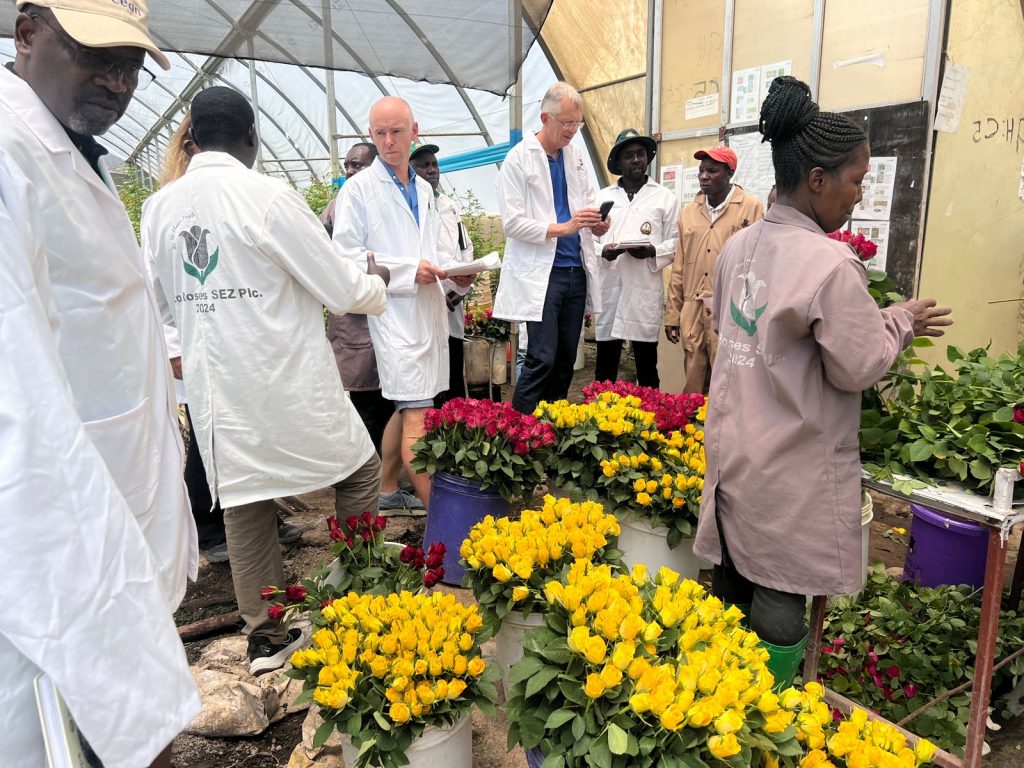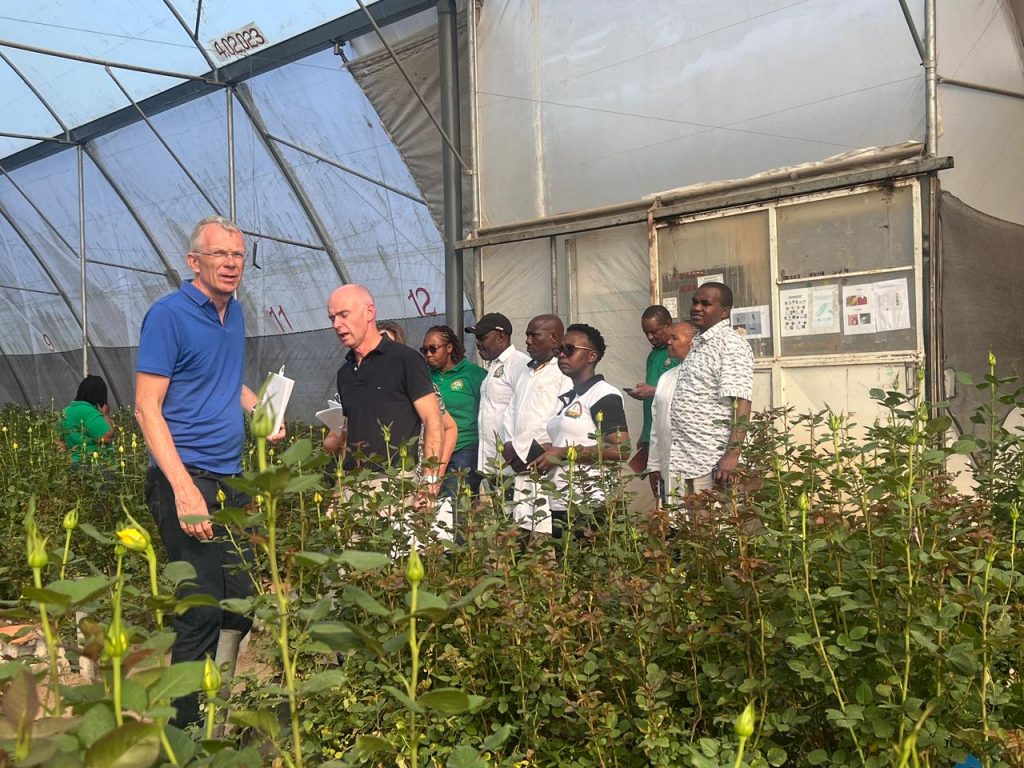October 23, 2025

PHOTO CREDIT: KEPHIS
In a significant affirmation of Kenya’s commitment to quality and safety in horticultural exports, the Directorate-General for Health and Food Safety (DG SANTE) of the European Union initiated an audit on October 6, 2025, examining how Kenya’s Plant Health Inspectorate Service (KEPHIS) manages phytosanitary controls for cut flowers and unrooted plant cuttings destined for the EU market. This audit focuses on Kenya’s implementation of a comprehensive System Approach targeting the False Codling Moth (FCM) pest in cut roses, as well as adherence to approved compliance processes for calibrachoa, petunia, and their hybrids.
DG SANTE conducts these audits globally to ensure exporting countries maintain effective border and plant health controls that prevent pest and disease introduction into the EU. For Kenya, the audit underlined KEPHIS’s role as the National Plant Protection Organization ensuring that Kenya’s floriculture exports meet strict EU phytosanitary standards. By successfully passing these audits, Kenya safeguards its access to the lucrative EU market, upholds its reputation as a reliable supplier, and strengthens its conformity with international trade and plant health regulations.
The audit examined Kenya’s System Approach, a rigorous pest-risk management program integrating pest surveillance, greenhouse and crop management, inspection protocols, record-keeping, and traceability throughout the production and export chain. For already approved plant cuttings, the EU auditors verified ongoing compliance with protocols to certify these exports as pest-free and fully aligned with import standards.

PHOTO CREDIT: KEPHIS
Field evaluations were conducted across major horticultural production zones, including Thika, Naivasha, Nakuru, and Isinya. Auditors reviewed the effectiveness of pest monitoring, greenhouse integrity, and pre-export inspection steps. Inspections extended to exit points such as Jomo Kenyatta International Airport (JKIA) and laboratory assessments at KEPHIS’s Muguga and Headquarters facilities, accompanied by stakeholder consultations.
This audit is timely, coinciding with Kenya’s increasing stature as a trusted provider of high-quality, safe plant products while expanding into propagation material exports. The collaborative audit process bolsters confidence among regulators and importers alike, reinforces Kenya’s leadership in science-based regulation, and enhances compliance frameworks vital to the horticulture sector.
In 2024, Kenya’s flower industry generated around KES 108 billion (approximately USD 835 million) in export revenues, highlighting floriculture as a key foreign exchange earner. KEPHIS facilitated over 573,000 consignments of agricultural exports, including 240,000 tons of fresh-cut flowers, culminating in a total horticultural export value estimated at KES 136 billion. The floriculture sector currently supports over 200,000 direct jobs and impacts millions of livelihoods along the value chain.
The DG SANTE audit closed on October 16, 2025, with a final review meeting at KEPHIS Headquarters, reinforcing a shared commitment to transparent, science-led regulatory systems and safe global trade in Kenyan horticultural products. This milestone underscores Kenya’s dedication to maintaining market confidence and securing its place as a global leader in phytosanitary excellence and floriculture export compliance.
This development is critical for stakeholders across the floriculture value chain, guaranteeing that Kenya’s exports continue to meet and exceed EU market expectations while supporting sustainable economic growth in the sector.
